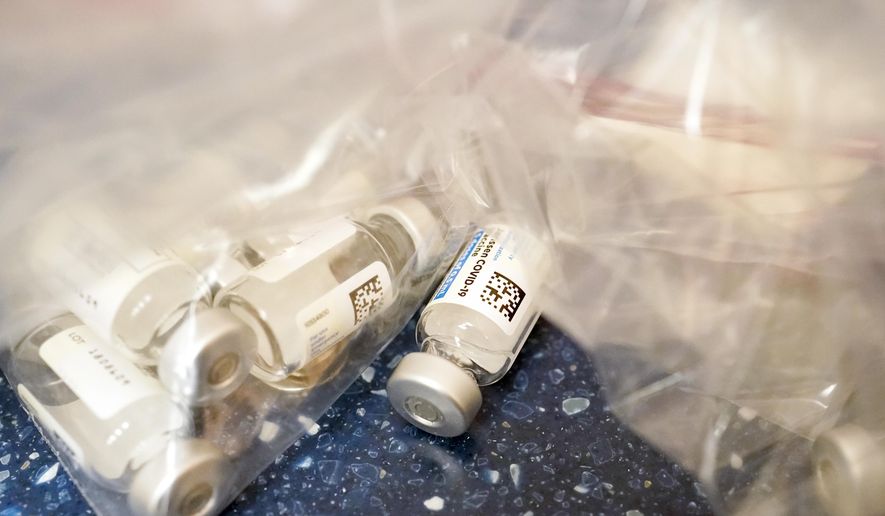A booster of Pfizer-BioNTech’s COVID-19 vaccine has proved highly effective in warding off disease from the dominant delta strain of the coronavirus, according to preliminary results of a late-stage trial.
The booster dose was 95.6% at preventing disease, compared to those who didn’t receive an extra shot in a trial involving more than 10,000 participants 16 years old and older, Pfizer announced Thursday.
“These results provide further evidence of the benefits of boosters as we aim to keep people well-protected against this disease,” Albert Bourla, chairman and CEO of Pfizer, said in a statement. “In addition to our efforts to increase global access and uptake among the unvaccinated, we believe boosters have a critical role to play in addressing the ongoing public health threat of this pandemic.”
All of the trial participants had completed the primary vaccination series with the Pfizer vaccine and then received either a booster or a placebo. The median time between the second shot and the booster dose or placebo was about 11 months.
The researchers measured for symptomatic COVID-19 occurrence at least seven days after the booster or placebo was administered, with a median follow-up of 2.5 months. Among the booster group, there were five cases of COVID-19 compared to 109 cases in the placebo group.
More than 55% of the trial participants were between 16 and 55 years old, while 23% of participants were 65 and older. The effectiveness of the booster dose was consistent regardless of age, sex, race, ethnicity or underlying conditions, Pfizer said.
The vaccine maker also said no safety concerns were identified during the trial, noting that adverse events linked to the booster doses were generally similar to those tied to its COVID-19 vaccine.
Last month, U.S. federal regulators approved booster doses of Pfizer-BioNTech’s vaccine for emergency use. Individuals 65 and older, those 18 through 64 years old at high risk of severe COVID-19 or with frequent “institutional or occupational exposure” to the coronavirus are able to get the booster doses under the emergency use authorization.
On Wednesday, the Food and Drug Administration expanded the emergency use authorizations for booster doses for Moderna’s and Johnson & Johnson’s COVID-19 vaccines.
The FDA said a single booster dose of Moderna’s vaccine can be administered at least six months after the primary series for people 65 and older, those 18 to 64 years old at high risk for severe COVID-19 or with frequent occupational or institutional exposure to the coronavirus.
A single booster dose of the Johnson & Johnson vaccine can be administered at least two months after the completion of the single-dose series for those 18 years and older under the revised EUA, according to the agency.
The FDA also said the emergency use authorization permits the mixing and matching of booster doses for eligible individuals, meaning those who completed a primary vaccination series can get a booster dose of a different vaccine.
For instance, a Johnson & Johnson vaccine recipient that is at least 18 years old could receive a Johnson & Johnson booster dose or a booster dose of either Moderna’s or Pfizer’s COVID-19 vaccine after at least two months have passed.
• Shen Wu Tan can be reached at stan@washingtontimes.com.




Please read our comment policy before commenting.